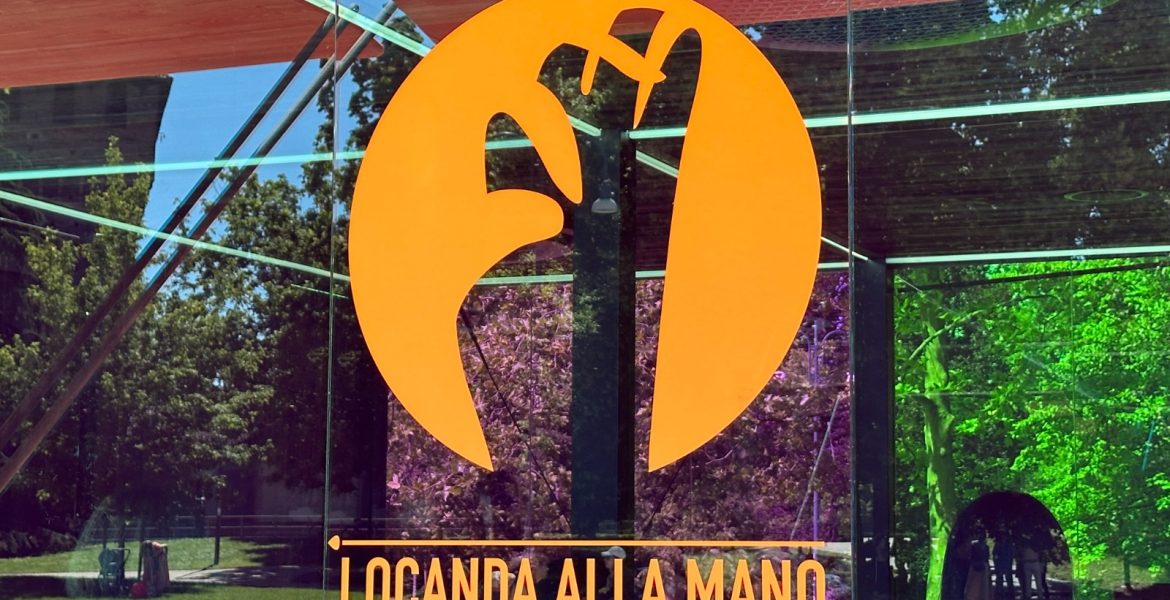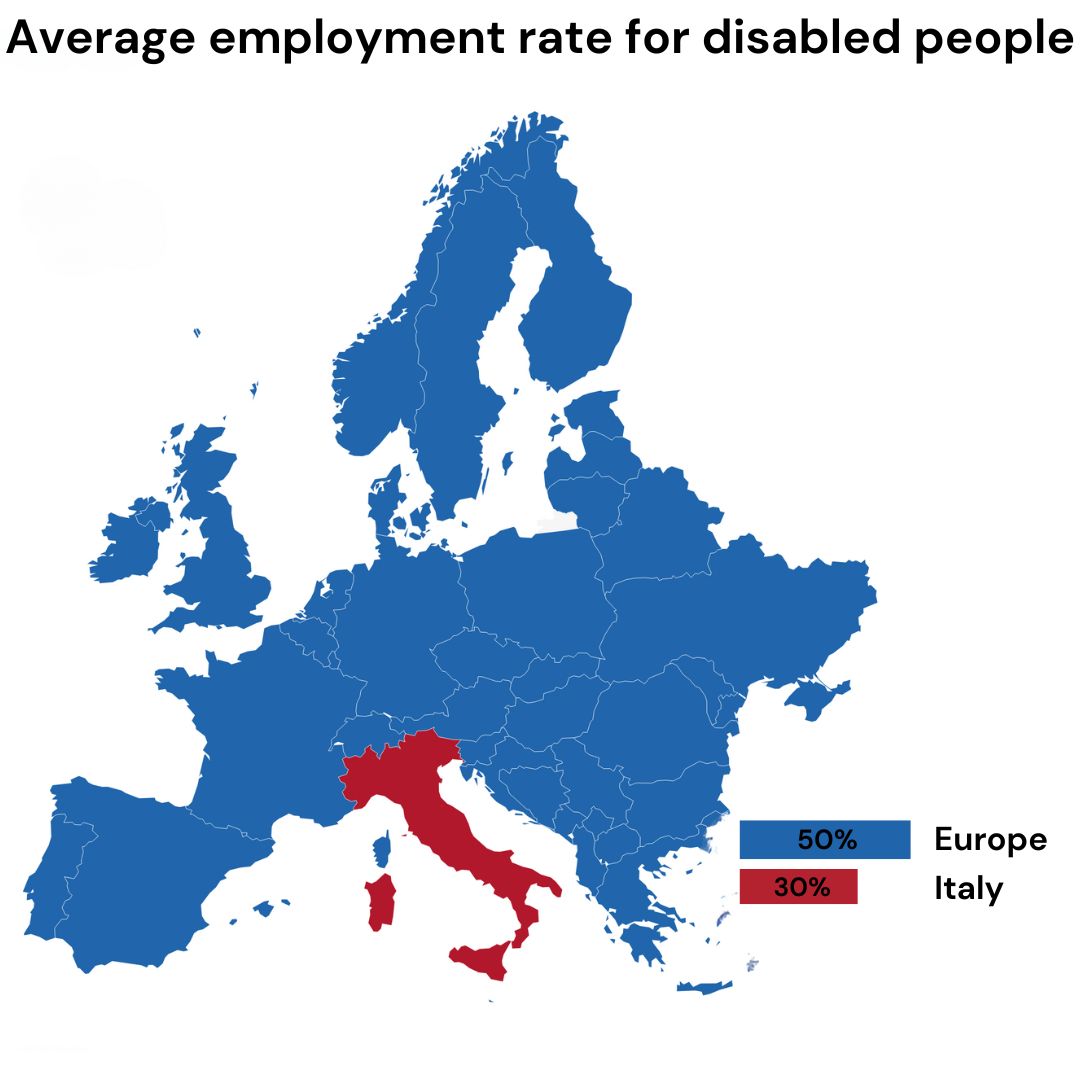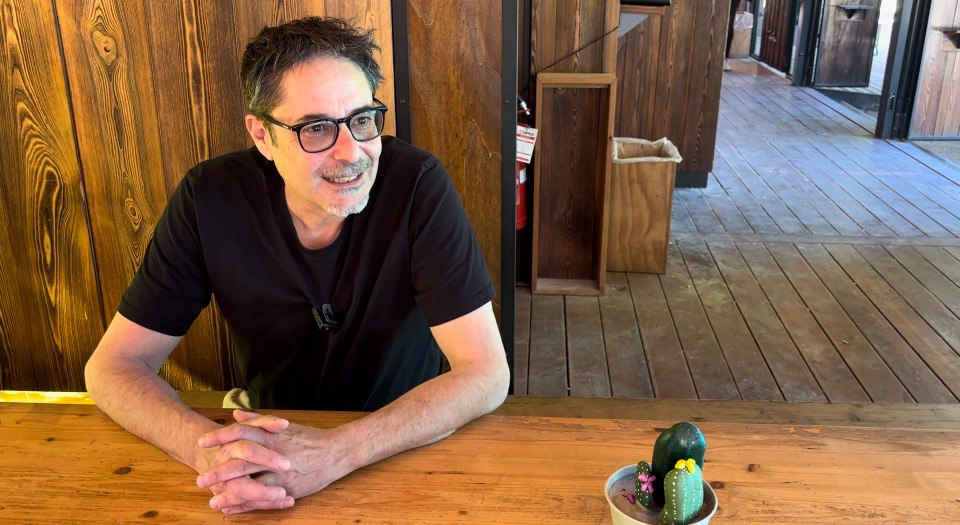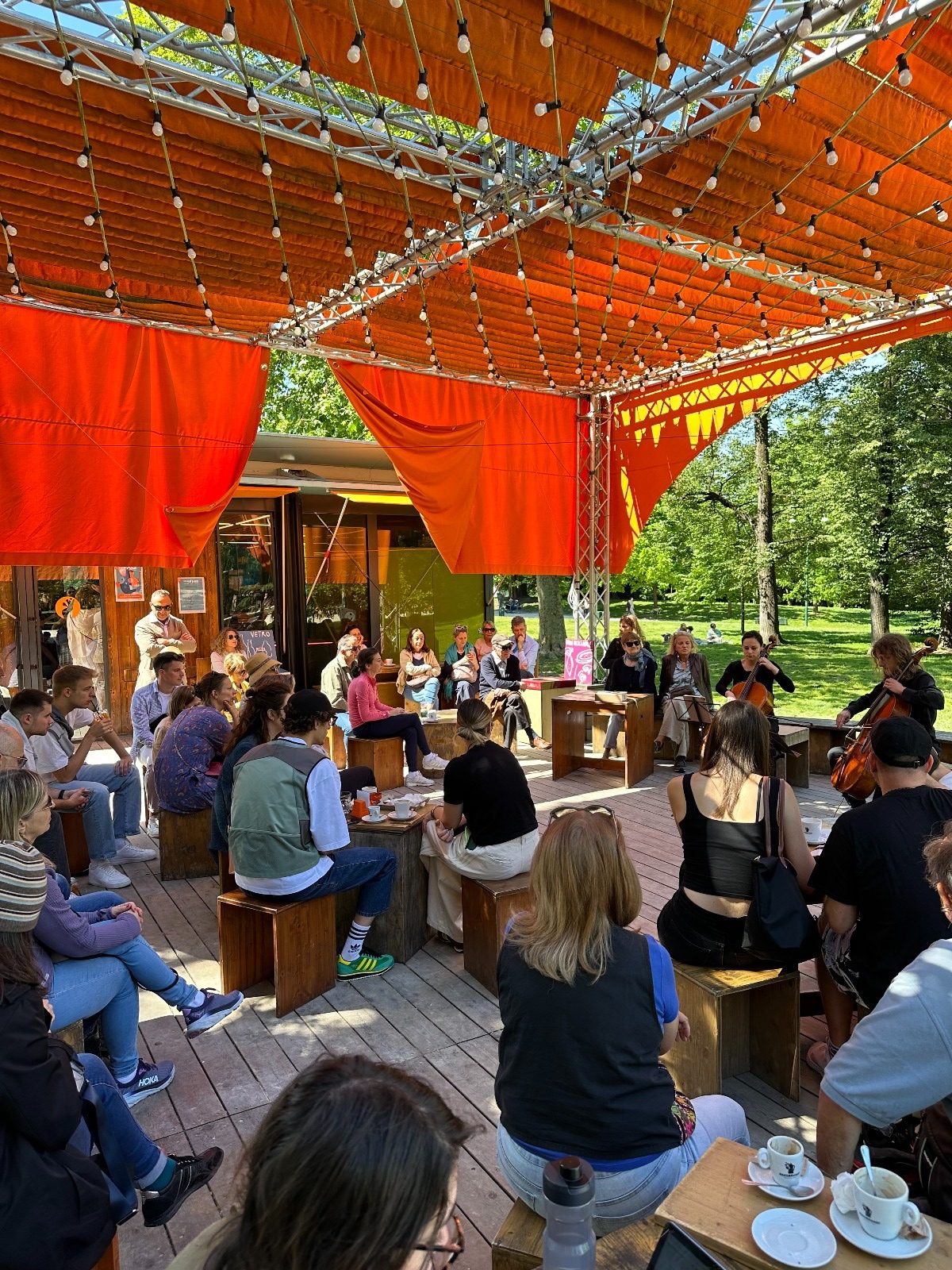
Waiting tables, pouring beers, mixing cocktails. Elisa and Andrea’s jobs sound like what you could find in every bar. But Locanda alla Mano – located in Sempione Park in Milan – is not just a bar. Elisa, 26, and Andrea, 23, both live with Down Syndrome. “Besides this job at Locanda alla Mano I also have an apprenticeship at a bakery in Gorgonzola”, she says. Her passion? “Making cappuccinos and good coffees”, she admits with a smile. Andrea has been working in the bar for six years now. “After hospitality school I had no difficulty finding this place and I really like it”, he says, looking straight into the camera.

Some data
Elisa and Andrea are part of the 5% of the Italian population affected by disability, which is approximately 3 million people. Among them, the number of disabled people of employable age and capable of working is about 700,000. Only 30%, however, are actually employed, compared to 60% of the total population. Italy seems to lag behind the rest of Europe where the average percentage of disabled people in employment is 50%. In order to fill this gap, Italy has implemented special employment policies for people with disabilities. Indeed, Law n.68/99 requires workplaces with more than 15 employees to recruit at least one person with a disability.

What is Locanda alla Mano?
Locanda alla Mano is one of these places. “This project was born in 2015 with the Expo, by the Cooperativa Sociale Contè. It was supposed to be a six-month project for job placement with young people with Down Syndrome”, says the owner of the bar, Carlo Giuggioli. The Comune di Milano then asked Carlo to continue and today Locanda alla Mano is almost ten years old. “The purpose is normality of work, the guys learn and are trained as it happens to anyone when they start working”, Carlo emphasizes. What really differentiates this project from others is that Locanda alla Mano receives no funding from the municipality. It is self-financed like any other business.
How the project develops
Carlo hires his staff in several ways. The first is word of mouth among the parents, there is an association of kids with Down Syndrome, there are about 300 families, to whom Locanda alla Mano addresses itself. “We take these teens and make them do tests. They are not ability tests, but aptitude tests. In this job you are always in contact with people, therefore you have to see if the guys like it and are comfortable with it”, explains Carlo. The second way Locanda alla Mano hires these guys is from hospitality schools in Milan and its province, such as in Andrea’s case. “In the beginning you have to learn, then the tasks become a bit more difficult. For example, Elisa prepares delicious spritz”, says Carlo with a chuckle.

The true meaning of Locanda alla Mano
When you step inside Locanda alla Mano, the feeling is that of coming home. Informal atmosphere, serene and welcoming looks. The first are those of Elisa and Andrea, who show complete autonomy in carrying out all the tasks assigned to them. The bar’s clientele is varied. Still, it happens that some are surprised to see these young people at work at first glance. “It can happen that the customer gets bewildered. Not through malice, but through ignorance. Then when he sees that everything is carried out normally, he changes his mind”, explains Carlo. In effect, one of the aims of this activity is also to educate people to deal with this type of disability.

Support in this place is essential. “I had the chance to help the new guys and it was nice. If I didn’t work here I would be a courier”, says Andrea. Then he takes the metro and is on the way home in 50 minutes, since from Sesto Rondò he has to get to the Cairoli stop. But he makes these stops completely independently. Like Elisa, who returns to Gorgonzola, a village near Milan, every day after her work shift. These two young people have a story similar to that of many other Italian children with Down Syndrome. But they are a reconfirmation of how integration and autonomy can be achieved through the normalization of daily life.
